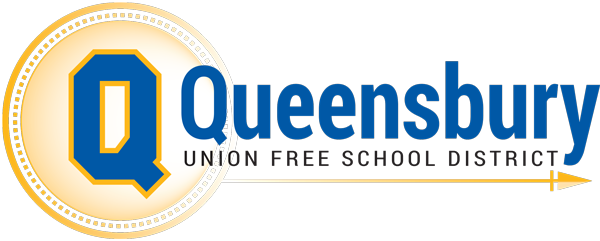On Tuesday, May 21, Queensbury Union Free School District residents will decide on a proposed $78,547,546 budget for the 2024-25 school year. The proposed spending plan reflects a spending increase of $3,251,647 or 4.32%.
The proposed tax rate is $16.62 per $1,000 of assessed valuation. Actual tax bills are calculated in August using a property’s assessed value as determined by the local town assessor and the property tax rate. STAR exemptions or other exclusions can reduce school tax bills for eligible residents.
Voters will also elect two candidates to fill open seats on the Queensbury Board of Education. Both seats are for five-year terms (see p. 4). Polls will be open from 10 a.m. to 8:30 p.m. Tuesday, May 21, in the Queensbury Elementary School gymnasium, 431 Aviation Road.
Residents will also vote on establishing a $3 million capital reserve, which will be used to fund future construction needs at the William H. Barton Intermediate School and the Queensbury Middle School.
The school tax levy — the total amount of money collected from local property owners — accounts for about 50% of the proposed budget. Under the proposed plan, the tax levy would increase by just 2%, or $769,646, despite the district facing a significant spike in employee health insurance costs and the discontinuation of federal American Rescue Plan funding that was available during the COVID-19 pandemic.
“We can sustain these hits,” said Superintendent of Schools Kyle Gannon.
In Gov. Kathy Hochul’s original budget proposal, Queensbury UFSD would have seen an $84,189 decrease in foundation aid funding from the state. However, the budget that was passed on April 20 restored that foundation aid to the same amount as last year.
Queensbury UFSD pays about $11 million a year for employee and retiree health insurance for both medical and prescription drug costs. The district is facing a 15-17% increase in health insurance costs this year, accounting for a $1.5 million increase in the proposed budget.
Queensbury UFSD is part of a 30-school health insurance consortium that shares administration costs and obtains volume discounts on health insurance for current and retired employees.
“The consortium is experiencing a greater-than-expected usage rate in terms of the health insurance expenses, and they have adjusted the premiums upward in order to be fiscally solvent on their end. So the cost is being passed through to all the districts in the consortium,” explained Scott Whittemore, the assistant superintendent for business.
Unlike many of its peer districts, Queensbury UFSD was prepared for rising costs in health insurance, he said.
“The health insurance rate increases are very significant,” Whittemore said. “They project to be challenging in the next year and maybe even on a three-year trend, so we have to include that in our long-term planning.”
During the COVID-19 pandemic, Queensbury UFSD used the American Rescue Plan Act grant funding to add some before- and after-school programs as well as four new positions — a high school social worker, a middle school employment exploration teacher, a high school Bridges teaching assistant, and a director of Social and Emotional Learning.
“That’s money that’s been flowing in that we’ve been using, but we can’t count on anymore,” Gannon said.
Those four positions will be going on the district’s books at a cost of approximately $500,000. The Transportation Department and Facilities Department budgets were also hit hard by inflation, Whittemore said.
The district is considering the purchase of electric buses with the help of a NYSERDA grant, which will bring the net cost of the buses down significantly.
Despite these budget challenges, Queensbury UFSD looks forward to welcoming an additional 18 preschoolers to the district in September as the universal prekindergarten program expands to five classrooms. More than 130 students entered the UPK lottery in the spring vying for 90 available seats.
“This UPK program is really important,” said Denise Troelstra, assistant superintendent for instruction. “There’s just such an advantage to attending UPK, and we’re seeing that in the classrooms. The kindergarten teachers are excited to receive those UPK students next year.”

